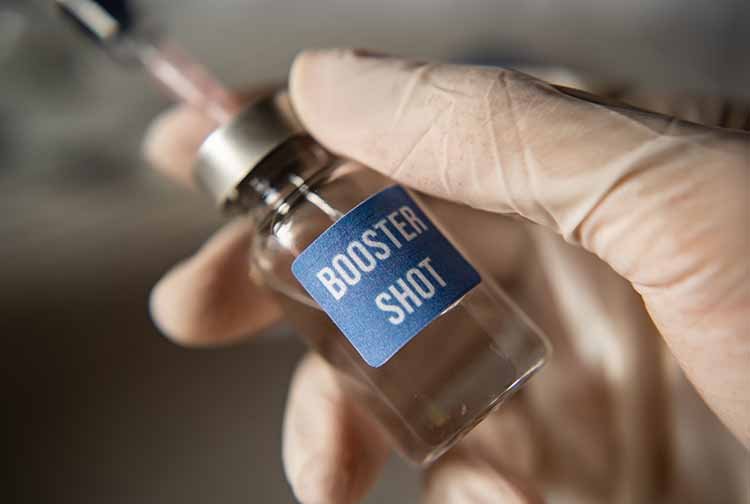
Image Source : https://www.vcuhealth.org/
As of now, the U.S. Centers for Disease Control and Prevention (CDC) confirms that boosters are only available to people who originally received the Pfizer-BioNTech vaccine. Additionally, they must meet additional criteria:
In the United States, it’s anticipated that the Food and Drug Administration will soon determine whether people can get different brands of boosters than their initial doses. Early, limited data indicates a mixed approach could result in better immune responses.
A recent government study suggested Johnson & Johnson vaccine recipients might get the best results from a Moderna booster. The Pfizer-BioNTech vaccine also showed a better response in J&J vaccine recipients than getting the same vaccine, but outcomes were not as beneficial as what the Moderna booster caused.
Experts believe regulators will approve boosters for Moderna recipients at least six months after their second dose. People who received the single dose J&J will likely be eligible at least two months after their initial vaccines.
Some other countries have already approved mixing booster doses. For example, Germany’s Angela Merkel initially received Astra-Zeneca doses but got a Moderna booster. People outside of the U.S. should follow official guidance about if and when they can get another dose.
A common misconception is that the booster is a different formula than what someone got the first time. However, it’s identical in all cases.
Another thing people often don’t realize is that water is the main ingredient in all vaccines. Some water purification companies produce millions of gallons of pharmaceutical-grade water daily, making them important parts of vaccine production.
People in the United States will find different approaches to COVID booster campaigns depending on where they live. For example, Massachusetts residents can use a web app or call a hotline to find their nearest vaccination locations. Once arriving at one, they must self-attest that they meet the criteria.
A New York pharmacy student gave a recent account of how she helps administer COVID boosters at Walgreens. Scott Harris, the health officer for Alabama, said his state is not asking anyone who qualifies to automatically come forward for a booster.
States have not developed a uniform booster dose approach, and some have limited supplies. Regardless of where they live, an interested person should proactively research or ask their health care provider for further guidance instead of assuming their nearest pharmacy has boosters.
An immune system response to a vaccine begins when it encounters an unknown antigen. As the body helps fight it off, a person might get a fever or experience inflammation. That’s why many individuals experienced short-term side effects, such as a sore arm, chills and body aches, after their COVID-19 vaccines.
A study of several hundred people who received third doses of the Pfizer-BioNTech vaccine explored what side effects they caused. The results showed people are most likely to feel similar to how they did after their second doses.
More specifically, 79.4% and 74.1% reported local or systemic reactions, respectively, after the third dose. About 77.6% and 76.5% of people had them after the second shot.
In some states, a person must show proof of full vaccination to participate in activities. People understandably wonder if they’re still fully vaccinated without getting boosters.
“At this time, the booster shots are not required for individuals to be classified fully vaccinated,” says Phil Felgner, Ph.D., the director of the Vaccine Research and Development Center at the University of California in Irvine. Dr. Joseph Iser, a regent-at-large for the American College of Preventive Medicine, echoed that statement, saying, “Boosters do not mean that you are not fully vaccinated but are recommended to give an extra ‘boost’ to your immunity.”
Deciding whether to get a COVID booster is like many other health choices because it’s best made with a health professional’s input. Medical advice helps people make informed choices.




